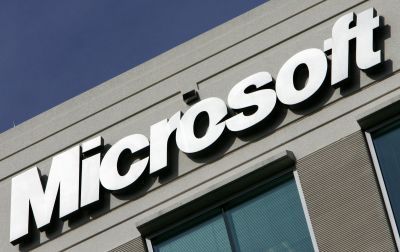Brussels ends Microsoft war with browser deal

European regulators have forced Microsoft, the world's biggest software company, to open up its Windows operating system to rival Internet browsers in a landmark decision unveiled on Wednesday.
Bringing down the curtain on a decade-long anti-trust tussle, the legally-binding agreement will see new computer users presented as of March 2010 with 12 browser options when they configure their systems.
Apple Safari, Google Chrome, Mozilla Firefox and Opera, from the Norwegian company that first complained to competition enforcers in December 2007, will each be displayed prominently alongside Microsoft's Internet Explorer.
Another seven, regularly updated to reflect user charts, will also be included in an agreement that frees Microsoft from the threat of fines worth 10 percent of its turnover, which hit 58.44 billion dollars in the year to June.
Brussels also accepted a similar informal undertaking covering consumer choice in relation to other PC software and applications, calling a halt to a series of disputes which saw Microsoft hit with 1.68 billion euros (2.438 billion dollars) in EU fines.
The accord - which does not apply outside Europe - concerns computers running Windows XP, Windows Vista and Windows 7 and marks a step-change for the company, with strategic implications for Microsoft in other regions.
The decision will be implemented for five years from mid-March 2010 and represents "a Christmas present for hundreds of millions of Europeans," EU Competition Commissioner Neelie Kroes told a press conference.
"We will just look over what is left, shall we say," she said when asked what anti-trust issues remain on the table. "Microsoft is well aware, in competition terms, what has to be avoided," Kroes stressed.
Brussels threatened litigation on the browser issue in January this year, saying consumers were not being allowed to make an "unbiased" choice.
Computer users are already able to download and install different broswers but patience is required as well as a minimum of expertise - whereas the new approach is intended to make it easy for novices to choose right from set-up.
The "choice screen" will pop up on 100 million new personal computers going on sale in the European Economic Area - the 27 EU nations plus Iceland, Liechtenstein and Norway.
Brussels said the result "legally binds Microsoft to the commitments it has offered and ends the commission's investigation" into whether the company had abused its dominant position. It will be reviewed within two years.
"Implementation that effectively delivers choice for consumers and a level-playing field for competitors depends on robust and sustained monitoring and enforcement," warned the European Committee for Interoperable Systems.
"We are embarking on a path that will require significant change," said Microsoft senior vice president Brad Smith. "Nevertheless, we believe that these are important steps that resolve these competition law concerns."
"This is a victory for the future of the Web," said Jon von Tetzchner of Norway's Opera, one among a wave of developers offering software available online through common 'cloud' servers.
Kroes said the deal would also "act as an incentive for web browser companies to innovate and offer people better browsers in the future."
Subscribe to Independent Premium to bookmark this article
Want to bookmark your favourite articles and stories to read or reference later? Start your Independent Premium subscription today.

Join our commenting forum
Join thought-provoking conversations, follow other Independent readers and see their replies